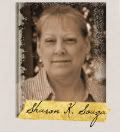We'd like to welcome our new followers. Please join in on the conversations. We love hearing from you.
Don't forget our exclusive Audience With an Agent Contest. Agent Wendy Lawton of Books & Such will read the winning entry. Submission guidelines are under our Promotions tab. Please read and follow the guidelines carefully.
~
A good friend is visiting for a couple of days while my husband is out of the country on a missions trip. Gerri and I have been close friends for a quarter of a century. Our kids have been good friends most of their lives, and now our grandkids are good friends. As much as we enjoy each other's friendship, you couldn't find two people more different than Gerri and I. She's a sanguine-choleric, oozing confidence, while I'm a melancholy through and through.
One of our more pronounced differences is that Gerri, a respected Bible teacher in our circles, almost exclusively reads non-fiction, while I, of course, am a novelist. I finally persuaded her to read Lying on Sunday, and tonight we had a most interesting conversation about her take on the book (which she confesses has become like dessert at the end of the day). Well then.
~
On Monday, Katy asked, "What lengths will a writer go to to write great dialogue?" To take it a step further, what does that dialogue--and characterization and theme--reveal about the writer? According to my friend, plenty.
~
She said to me, "You're a vault, Sharon. No one knows the real you, because you have the key well hidden. But you express your deepest feelings, elequently I might add, in your writing. And I'm amazed because I've known you for 25 years, and I've never known you to express your feelings the way you do through your characters. But make no mistake about it, they're your feelings." She went on to say an author has to be in touch with her own feelings in a finer way than she lets anyone know, for she couldn't possibly know her characters so well if she didn't know herself to the same degree.
~
Having done a good deal of teaching on the four personality types: sanguine, choleric, phlegmatic and melancholy, Gerri said, "Reading your novel has helped me understand how a melancholy--a personality type whose language I don't even speak--thinks. (Kind of tough since she's been married to a melancholy for 40 years.) When I pick up Lying on Sunday I'm in Abbie's world. I see that her biggest problem is that she could never measure up to her own expectations--let alone her husband's or God's. Because of your novel I have a greater understanding of family and friends whose personality types are so different from mine. I've learned more about you through the pages of this book, than through hours of conversation."
~
The thing she said that meant the most to me was that women will be touched by this story; that it will help them through some difficult situations. Honestly, I couldn't hope for a greater result for my efforts. I believe it's the ministry God has given me, the way Philippians 2:13 is worked out in my life: "For it is God who works in you to will and to act according to his good purpose."
~
I wonder, what fictional character, most unlike you, has helped you learn more about the people around you--or even yourself?














6 comments:
Guess I'm like you, Sharon, in that I think I'm not revealing much about myself when I write. I'm private and not a big talker.
It startles me each time I realize people are reading my words even when I'm not even thinking about them.
I often wonder that. I suppose there has to be a little bit of the writer in each of our characters. The characters are developed from our frame of reference and what is that? Our own personalities, relationships, and experiences, but our repetoire of imaginations, skills, resources, and knowledge. I think on some level the writer connects with the character even if it is an anti-persona. However, I also think that many readers "read to much into it". What a wonderful means of self expression, even if one is not expressing self. Not a simple answer.
Sharon, at first I was surprised that Gerri described you as "a vault," till I remembered that our friendship began with the writing. Isn't that interesting?
I'm often surprised at the end of a project at how much of my interior life I've revealed. It stands to reason. Fiction is an exercise in empathy. How can I enter into the feelings of another unless I find a touchstone in myself?
Long ago I read somewhere that people are different only on the surface, but the deeper we go, the more we are the same. Therefore, the most personal stories will always the most universal.
So I guess we're stuck with writing about ourselves.
Katy, I love this: Fiction is an exercise in empathy. How can I enter into the feelings of another unless I find a touchstone in myself? So true.
Latayne, I think we'd all be surprised at how much of ourselves goes into our writing. It takes someone else to recognize how much of our slip is showing, so to speak.
Carla, I think you're right: on some level the writer connects with the character even if it is an anti-persona. Our writing shows just how multi-faceted we are.
Loved this post! I'm fascinated by both the various personality types (I'm phlegmatic-choleric) and the subtle ways in which our writing reveals ourselves (wrote a blog post on it myself awhile back). I really love that your friend was able to see you so clearly (or perhaps so much *more* clearly) in your writing. How neat to be able to get a glimpse of the inner self that you probably didn't even know you were writing about!
Post a Comment